32 Health Benefits Of Black Tea For Skin, Hair, And Health
This 4000-year-old tea has a lot to offer - if you choose to drink it daily.
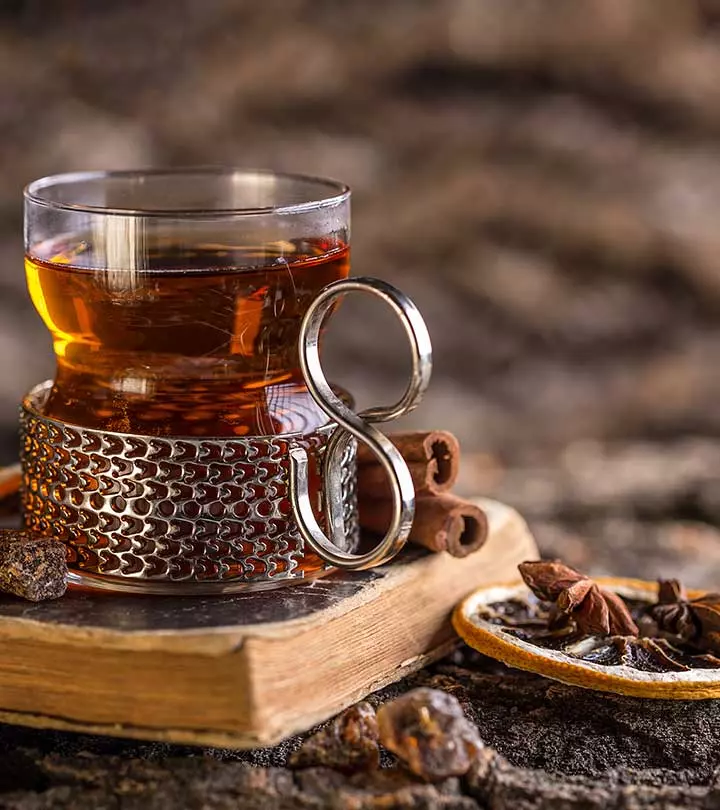
Image: ShutterStock
The many benefits of black tea will sway you to choose it over any other tea. It was discovered about 4000 years ago in China. It is famous for its robust flavor and health benefits and is now enjoyed worldwide and appreciated for both its taste and its potential to promote well-being. The phytonutrients in this tea can assist in flushing toxins from your body and healing your body (1). In addition, the caffeine level is less than coffee (2).
This article discusses the benefits of black tea, its types, nutritional profile, easy-to-follow recipe, and any potential side effects. Take a look.
 Know Your Ingredient: Black Tea
Know Your Ingredient: Black TeaWhat Is It?
A dark amber or orange liquid produced from the leaves of the Camellia sinensis plant.
What Are Its Benefits?
It improves alertness, slows down premature aging, and boosts hair growth.
Who Can Consume It?
Anyone can consume this except people with diabetes and those on antibiotics and stimulants.
How Often?
You can drink 2-3 cups of black tea daily.
Caution
Avoid excess consumption of black tea if you are pregnant. Overconsumption may cause diarrhea, frequent urination, heartburn, or anxiety.
In This Article
What Is Black Tea?
Black tea is produced by oxidizing the leaf of the plant Camellia sinensis. The name ‘black tea’ can be attributed to the color of the tea. However, technically, it is dark amber or orange. Hence, the Chinese referred to it as red tea. The method of black tea production makes it different from the other varieties of tea such as green tea and oolong tea.
“The difference between black tea and regular tea is that the former has a stronger flavor because of a complex oxidation process. Black tea also contains caffeine. As it contains caffeine, it does not promote relaxation,” says Registered Dietitian Bill Bradley.
After being plucked, the tea leaves are withered to release the moisture from them. When they lose the maximum amount of moisture, the leaves are rolled, either manually or with the help of machines, through exposure to high temperature. Once the leaves are oxidized fully, they are sorted as per their size. The caffeine content in any tea is often a cause of concern. As far as black tea is concerned, one cup of tea has about half the amount of caffeine found in a cup of coffee. Let’s now look at how is black tea good for you and if so, what is black tea good for.
 Fun Fact
Fun FactKey Takeaways
- Black tea may improve heart health, boost immunity, and lower the risk of ovarian cancer.
- Drinking black tea may improve hair growth and add luster to your hair.
- Always choose dried and long black tea leaves with golden or silver tips.
- Excess consumption of black tea may cause diarrhea, constipation, or anxiety.
Health Benefits Of Black Tea
Black tea may promote heart health, treat diarrhea and other digestive problems, regulate blood pressure, and lower the risk of Type 2 diabetes. To enjoy all of its benefits, you should consume this energy tea without any additives like milk or sugar.
1. May Boost Heart Health
The flavonoids in black tea may promote heart health. Scientists have confirmed that drinking three or more cups of black tea per day can reduce the risk of coronary heart disease. Moreover, black tea is also associated with a reduced risk of myocardial infarctioni Also commonly known as a heart attack, which occurs due to insufficient blood flow to the heart muscle. , ischemiai A condition that causes reduced blood flow, therefore restricting adequate oxygen from reaching the various parts of the body. , and cardiovascular mortality (3), (4).
2. May Lower Ovarian Cancer Risk
The theaflavins in black tea may inhibit the proliferation of ovarian cancer cells (5). In a study conducted by the researchers at Roswell Park Cancer Institute, USA, a 30% decline in ovarian cancer risk was observed in patients who drank more than two cups of black tea per day (6). Thus, it may have anti-cancer properties. However, further studies are needed to understand this association further.
3. May Lower Diabetes Risk
Scientists have found that drinking tea may help lower the risk of Type 2 diabetes.
Black tea contains catechins and theaflavins (1). The beverage may help make the body more insulin sensitive and also prevents beta cell dysfunction (beta cells regulate blood glucose levels) (7).
4. May Boost Immunity
Black tea is rich in antioxidants that help scavenge free radicals. These free radicals tend to mutate DNA and hamper normal cell function. This can lead to inflammation and push the body into a state of stress. Black tea helps flush out oxygen radicals, boosting the function of the immune system. It helps restore normal cell and body functions and also boosts immunity (8), (9).
5. May Lower Blood Pressure Levels

Consuming black tea can help reduce blood pressure. Scientists from The Netherlands, Germany, UK, and Italy conducted an experiment where a group of people was given black tea for a week and their systolic and diastolic pressure readings were checked. At the end of this experiment, participants who consumed black tea were found to have lower blood pressure levels as compared to the control group (10).
6. May Improve Mental Alertness
Researchers from The Netherlands found that participants of a study who drank black tea had the strongest attention span and better auditory and visual attention (11). Teas, in general, contain l-theanine that modulates brain functions and the human attention process (12). The caffeine in black tea may also enhance mental alertness.
7. May Improve Bone Health
As you age, the strength of your bones starts to decline. However, scientists have observed that people who drink black tea can significantly restore bone density. For this reason, drinking black tea may also reduce the risk of fractures that most commonly occur in the elderly due to osteoporosisi A common bone disease that causes bones to become brittle and weak, making them severely prone to fractures. . Rats that were given black tea extracts were found to have better bone density (13). Therefore, if you are 30, make black tea a part of your diet to preserve bone density, and prevent osteoporosis and the risk of fractures. Drinking tea, in general, was also found to reduce hip fracture risk (14).
8. May Reduce Parkinson’s Risk
Parkinson’s is a neurodegenerative diseasei A disease caused by the continuous loss of function of neurons, like Alzheimer's disease and Parkinson's disease. that mostly affects older people. Research suggests that black tea polyphenols have a neuroprotective effect on the brain (15). In a study conducted at the National University of Singapore, scientists found that the caffeine in black tea was inversely associated with Parkinson’s disease (16).
9. May Improve Digestive Health
A healthy gut can shield you from various diseases and disorders. Consuming black tea may help improve the count and variety of good gut microbes. The tea polyphenols may act as prebiotics and act as feed for the good gut bacteria. These polyphenols may also prevent the growth of other harmful bacteria in the gut. Black tea may also help treat stomach ulcers, and potentially reduce the risk of colorectal and esophageal/stomach cancers (17), (18). However, more studies in humans are warranted.
10. May Lower Cholesterol Levels
Unhealthy lifestyle and irregular food habits may increase bad cholesterol levels in the blood. High LDL cholesterol (bad cholesterol) can lead to plaque buildup in the arterial walls. This limits blood flow, and may lead to heart attack, stroke, and ischemic attacki A mini-stroke caused due to a temporary disruption in the blood supply to the brain, thus causing a lack of oxygen. . In a study, black tea was shown to reduce LDL cholesterol by 11.1 %. Researchers had also found that black tea (including the Chinese variant) had anti-hypercholesterolemic effects in humans who were obese and prone to heart disease (19), (20).
11. May Aid Weight Loss

Obesity is the root cause of various ailments such as diabetes, heart disease, PCOSi Known as polycystic ovary syndrome, it causes increased levels of androgens in the ovaries, leading to hormonal imbalance. , high cholesterol etc. Like green tea, black tea also may help with weight management if consumed in addition to adopting proper lifestyle changes. Scientists from David Geffen School of Medicine, California, USA found that black tea helped reduce visceral fat by reducing the inflammation-inducing genes. Since a prolonged period of inflammation in the body can induce obesity, drinking black tea may theoretically help prevent inflammation-induced obesity. Moreover, black tea may also lower triglyceride levels (21), (22).
12. May Reduce The Risk Of Kidney Stones
Kidney stones are painful and prevalent. They are caused due to an increased excretion of crystal-forming substances such as oxalate, calcium, and uric acid from the body. Black tea seems to contain much lower levels of oxalate when compared to other herbal teas (23), (24). Though some anecdotal evidence suggests that black tea may reduce the risk of kidney stones, there is no sufficient research in this regard. Consult a doctor before taking black tea for this purpose.
13. May Relieve Asthma Symptoms
Asthma is caused due to inflammation and swelling of the airway or bronchial tubes. This makes inhaling and exhaling difficult. Anecdotal evidence suggests that drinking black tea or green tea may help relieve asthma symptoms. Certain studies have also proved that the caffeine in teas could help in lung function (25). The flavonoids in tea were also found to benefit those with asthma (26).
14. May Fight Free Radicals
Free oxygen radicals are caused by factors like pollution, smoking, and stress. They are toxic to the body. Antioxidants, a particular group of compounds, help fight these free radicals. Black tea is loaded with antioxidants and they play a role in this regard (1). Taking black tea with lemon may also help.
15. May Kill Bacteria
Most bacteria can cause infections and may also lead to death. The antioxidants and other phytonutrients in black tea may have antibacterial properties (27). Another study stated that teas (including black tea) may act against the bacteria that causes (28).
16. May Help Relieve Stress
According to a study conducted by the University College London, tea can reduce stress hormones in the body and relax the nerves (29). You may slowly replace grabbing a sweet (or a cigarette) with drinking a cup of black tea for stress relief.
17. May Reduce The Risk Of Alzheimer’s
Alzheimer’s disease causes loss of memory and affects one’s behavior and thinking process. Black tea antioxidants may reduce the risk of the disease, though there is no concrete evidence in this regard.
18. May Improve Oral Health
Consuming black tea may protect against dental plaque, cavities, and tooth decay (30). It also may freshen your breath. Black tea possesses antibacterial and antioxidant properties that prevent staphylococcus infections (31). The fluoride in black tea also inhibits dental caries (32). Moreover, studies have also reported that black tea may help prevent oral leukoplakiai Also known as smoker's keratosis, a condition that causes thick, white patches on the gums and the inside of the mouth. in patients with oral carcinoma (33). Therefore, consuming black tea may also help improve dental health.
However, black tea may stain the enamel. Consult your dentist in this regard.
19. May Treat Diarrhea
Drinking black tea may help treat diarrhea. In studies, diets that included black tea could decrease diarrheal prevalence by 20% (34). However, more research is needed in this regard.
20. May Promote Overall Mood
There is very limited research here. The antioxidants in black tea may fight stress. This could improve overall mood. The tea may regulate the levels of blood cholesterol and blood pressure. This may also have a positive effect on your mood.
Alice White, a blogger, stopped drinking coffee for 30 days and drank black tea instead. She shared her experience on her blog: “I was surprised to learn that energy-wise, tea can be a great substitute for coffee. Before, when I regularly drank coffee, I could drink tea like water. It had no effect on me. But after my coffee detox, I could feel my energy levels skyrocketing before I even finished my cup of tea (i).”
Now, let us see how drinking black tea can be beneficial for your skin.
Benefits Of Black Tea For Skin
Black tea can help improve your skin health. It could fight against skin infections and blemishes, delay skin aging, and reduce eye puffiness. The polyphenols and tannins in black tea are linked to skin cell rejuvenation. However, do consult a dermatologist before you use black tea for your skin.
21. May Prevent Skin Infections
Skin is the largest organ in the body. But it is delicate and needs proper care. Most skin infections occur due to microbial colonization. Tea catechins and flavonoids may help prevent skin infections. If you frequently experience skin infections, taking black tea in addition to your medication may accelerate the healing process (35). However, more research is needed in this regard.
22. May Reduce Puffiness
Under-eye puffiness is a serious concern for both women and men. It can make you look tired and increase the chances of premature wrinkling. The tannins and antioxidants available in black tea possess anti-inflammatory properties (36). They can help tighten the skin and reduce under-eye puffiness.
You can try using black tea bags or simply dip cotton balls in cold black tea and keep them under your eyes for 20 minutes every day. You can see a visible reduction in under eye puffiness in just a few weeks.
23. May Slow Down Premature Ageing
The antioxidants and polyphenols present in black tea may protect your skin from premature aging and wrinkle formation. In a study conducted on hairless lab mice, scientists found that black tea reduced the expression of the gene that creates a collagen-degrading enzyme. Moreover, black tea was a more effective anti-wrinkle agent as compared to other teas (37).
24. May Reduce The Risk Of Skin Cancer
Black tea is rich in antioxidants and may be effective against most types of cancer (including that of the skin). Lebanese scientists have confirmed in mice studies that drinking black tea may help reduce the risk of skin cancer (38). However, there is no significant data on humans yet.
25. May Protect From UV Radiation

UV radiation is among the leading causes of skin pigmentation, skin cancer, and other skin-related problems. Researchers have found that drinking black tea may help protect the skin and reduce the risk of skin issues caused by excessive UV exposure (39), (40). Apart from drinking black tea to prevent skin damage, you may also apply it topically. However, consult your doctor before doing so.
26. May Accelerate Skin Regeneration
Researchers from Malaysia have found that applying a black tea extract on the wounded skin of lab rats may accelerate healing. The extract also caused less inflammation and more collagen production (41). However, do not apply black tea directly on wounds. There is no study stating that it is safe. You may instead drink black tea.
27. May Reduce Blemishes
Blemishes can give you serious confidence issues. Using herbs to treat blemishes is always better. They are safer than most harsh chemicals and powerful drugs. Black tea could be one of those herbal drinks.
In a study, scientists had found that black tea had a skin whitening effect on brown lab guinea pig (42).
Moreover, black tea has antioxidant that may flush out the toxins that cause blemishes. However, there is limited research in this regard. You can either drink black tea or dab it cold on your blemishes using a clean cotton ball.
Benefits Of Black Tea For Hair
The antioxidants and caffeine in black tea may benefit your hair. The tea may promote hair growth and impart natural shine to hair.
28. May Prevent Hair Fall
Drinking black tea may prevent hair fall. It is loaded with antioxidants that help scavenge free radicals and relieve stress. These two factors are the leading causes of hair loss in women today (43). Hence, drinking black tea may help prevent hair fall.
29. May Stimulate Hair Growth
In a mice study, Chinese black tea that was fermented with Aspergillus sp. (a specific type of fungus) was found to stimulate hair growth after 2 weeks of topical application (44). More studies in humans are warranted. You may still consult your doctor and apply black tea (at room temperature) to your scalp and along the length of your hair. This may help promote hair growth.
30. May Add Shine And Luster To Hair
There is limited research in this regard. Some anecdotal evidence shows that black tea may add shine to hair. After shampooing your hair (with a mild shampoo) use black tea liquor (room temperature) to give your hair the final rinse. Do it for a few weeks and your hair may get softer and shinier.
31. May Act As Natural Dyeing Agent
Anecdotal evidence shows that the reddish black tinge of black tea makes it an excellent natural hair dye (especially for brunettes). Mix henna with black tea and apply it all over your scalp and hair. Leave it on for 1-2 hours and wash off with a mild shampoo. You can see instant results.
32. Improves Sleep Quality
Consuming GABA black tea, made using leaves rich in glutamic acid, may improve your sleep quality. A study showed that black tea, particularly when infused with γ-aminobutyric acid (GABA), may actually have a relaxing impact and enhance sleep quality. GABA is known to have a soothing effect on the brain, lowering tension and anxiety, both of which are common barriers to healthy sleep. Research on mice found that when they were given black tea containing GABA and tested with sodium pentobarbital, their sleep length rose dramatically and the general quality of their sleep improved (45). This shows that including GABA black tea in your nighttime routine might help you sleep more peacefully and for longer periods of time.
These are the benefits of black tea. Most of them are still being researched. But you can include the tea in your regular routine for hydration as well as the benefits discussed above. In the upcoming sections we will further discuss black tea.
Origin Of Black Tea
Black tea originated in China in 1590 around the late Ming Dynasty and early Qing dynasty. Earlier, the Chinese would only drink green or oolong tea. Legend has it that army men, while passing through the Fujian province, took shelter in a tea factory that had stopped the production of green or oolong tea. Meanwhile the tea leaves dried out in the sun and got oxidized. When the army men left, the factory resumed making tea, but the color of the tea was red or black and tasted more rejuvenating and aromatic.
This gave rise to the first black tea, known as Lapsang Souchong— “Lapsang” means the high mountains and “Souchong” means small leaves of the tea tree. The term “black tea” was coined by the British and Dutch traders. In 1610, the Dutch brought black tea to Europe and in 1658 it entered England. As black tea started growing popular, the British decided to grow it in Darjeeling and Assam, India.
There are a variety of black teas grown in China and India. In the following section, we will discuss the different types of black tea.
What Are The Types Of Black Tea?
Any type of tea can be made into black tea, including green tea, yellow tea, white tea, or oolong tea. The only difference is in the processing of black tea. While all kinds of black tea in China are produced from the Camellia sinensis plant, the black tea in India is produced from a different variety of tea plant known as Camellia assamica. Black tea from Camellia assamica has a stronger flavor and larger leaves than that from the Camellia sinensis variant. Here’s a list of various types of black tea that you must try.
Black Tea List According To The Production Region
- Lapsang Souchong
- Fujian Minhong
- Anhui Keemun
- Yunnan Dianhong
- Darjeeling Black Tea
- Assam Black Tea
- Ceylon Black Tea
- Nilgiri Black Tea
- Kenyan Black Tea
Black Tea List According To Popular Blends
- Earl Grey Black Tea
- English Breakfast
- Irish Breakfast
- Chai Tea
- Afternoon Tea
- Rose Black Tea
- Russian Caravan
However, the total phenolic content of different tea infusions is different. In a study conducted with 30 infusions of tea, a significant difference in the amount of phenolic content was observed. The different categories of tea based on their phenolic content, in their decreasing order, were green tea, yellow tea, oolong tea, dark tea, black tea, and white tea. Here is a graph that represents these results in detail.
The TPC Values Of 30 Teas
Source: Phenolic profiles and antioxidant activities of 30 tea infusions from green, black, oolong, white, yellow and dark teas.Black Tea Nutrition Facts
Black tea is mainly rich in antioxidants known as polyphenols. It also has minimal amounts of sodium, protein, and carbohydrates. Here is the nutrition chart of black tea (45), (46).
Serving size – 100 g
Calories 1
The aflavin-3 3′-digallate (black tea antioxidant) 0.06 – 4.96
Total Fat 0
Saturated Fatty Acids 0
Monounsaturated Fatty Acids 0
Polyunsaturated Fatty Acids 0
Omega-3-Fatty acids 3 mg
Omega-6-Fatty acids 1 mg
Trans Fats 0
Cholesterol 0
Vitamin A 0
Vitamin C 0
Sodium 5 mg
Potassium 37 mg
Fluoride 373 mcg
Dietary Fiber 0
Total Carb 0
Sugar 0
Protein 0
Calcium 0
Black, green, and white teas come from the same plant Camellia sinensis. However, there are a few differences between these three varieties of tea. We have discussed them in the following section.
Black Tea Vs. Green Tea Vs. White Tea
Black tea is completely oxidized while white tea leaves are harvested at a younger age. Green tea is a little more processed than white tea, and black tea is more processed than green tea. The processing of the tea destroys the antioxidants. Hence, white tea contains the most antioxidants and black tea contains the least. However, it would be best to drink a variety of teas to harness the benefits of all.
White tea has a subtle and sweeter taste compared to green and black teas. Black tea is more popular with Indians and the British while green tea and white tea are popular with the Chinese.
Black tea has the highest caffeine content when compared to white and green teas.
How To Select And Store Black Tea
Selecting Black Tea
- The tea leaves should not contain any moisture.
- Choose tea with long leaves with silver or golden tips.
- Choose Chinese black tea for a lighter variant, and Darjeeling or Assam black tea for a stronger variant.
- The color of the brew must be bright and should smell great.
- Choose CTC (crush, tear, curl) black tea if you wish to have strong black tea with milk.
Storing Black Tea
- The best way to store black tea is to keep it away from moisture and air. Prevent overexposure to sun or temperature fluctuations.
- Store the tea in tin containers.
- To store black tea for a year, add it to a ziplock bag and put this bag into a tin. Place the tin in the refrigerator.
- You can also store black tea in a vacuum flask.
- Wrap a piece of charcoal in a cloth and put it into the tin containing the tea. It will help absorb the extra moisture.
- Store black tea in an earthen pot with a small bag of lime powder. This also helps absorb the extra moisture.
Now you know how to select and store black tea. But what is the right method to prepare it? Find out next.
How To Brew Loose Leaf Black Tea
Here’s a simple way to brew black tea.
What You Need
- Tea Infuser – You need this to steep the black tea leaves. The infuser keeps the tea leaves from floating freely.
- Teapot – You need this to place the infuser into a pot of boiled water.
- Tea Kettle – You need this to boil water.
- Loose Leaf Black Tea – To prepare a calming and aromatic cup of black tea.
How To Prepare
- Take a cup of water per person and let it come to a boil in the tea kettle.
- Meanwhile, add ¼ teaspoon of loose leaf tea per person into the tea infuser.
- Place the tea infuser in the teapot.
- Pour the boiled water into the teapot and cover it.
- Steep the tea for four to five minutes.
- Remove the infuser from the teapot and keep it aside for a second steep.
- Pour the tea into a cup and inhale the aroma before taking a sip.
Note
: Registered Dietitian Bill Bradley cautions, “While it is okay to drink black tea on an empty stomach, especially in the morning, to kick lethargy away, it is best to drink it after a meal as it may cause acidity. Drinking black tea after a meal also aids digestion and boosts metabolism.”
This is how you make basic black tea. However, if you get bored of drinking the same tea daily, you can get a little innovative and prepare a few other black tea recipes. Take a look at the following black tea recipes.
Black Tea Recipes
1. Black Tea Infused Irish Porridge With Acai Berry
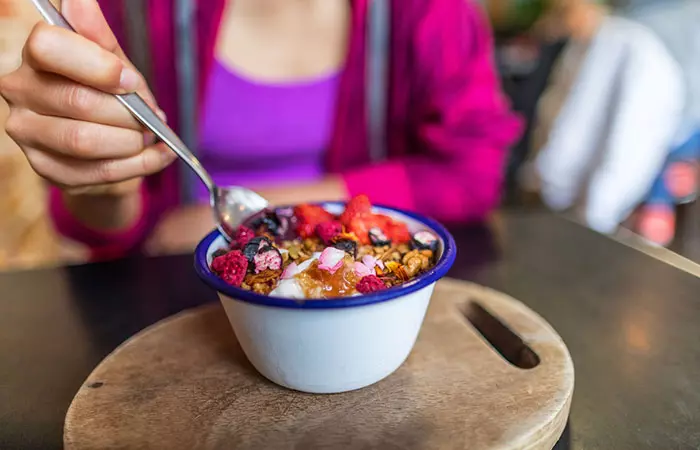
Ingredients
For Porridge
- 2 black tea bags
- ½ cup instant plain oats
- 1 ½ cup almond milk
- 2 tablespoons organic honey
- 1 teaspoon vanilla bean seeds
- Berries and nuts for topping
For Acai Berry Ripple
- ½ cup frozen berries
- 1 tablespoon organic honey
- 2 tablespoons acai powder
Pistachio Cream
- ⅔ cup full-fat coconut milk
- ¼ cup roasted, shelled pistachios
How To Prepare
- Place a saucepan over medium flame. Add ½ cup water, oats, almond milk, vanilla bean seeds, and tea bags with a pinch of salt.
- Simmer the mixture. Stir and cook for 20 to 30 minutes.
- Remove the tea bags and vanilla beans.
- Add honey and more almond milk to bring the mixture to a porridge consistency.
- To make the acai ripple, blend the frozen berries, acai powder, and organic honey.
- To make the pistachio cream, blend the pistachios and full-fat coconut milk in a food processor until smooth.
- To serve, add a generous amount of porridge in a glass jar and top it with acai berry ripple.
- Add a dollop or two of pistachio cream.
- Finally, top it with berries and nuts and enjoy.
2. Chai Tea Recipe
Ingredients
- ½ cardamon pod
- 3 cloves
- ½ inch cinnamon bark
- 4 black peppercorns
- ½ inch fresh ginger
- 2 Darjeeling tea bags
- 1 ½ cup full-fat milk
- 2 tablespoons coconut sugar
How To Prepare
- Use a mortar and pestle to crush the clove, cardamom, ginger, black peppercorns, and cinnamon.
- Add milk to a saucepan and toss in the crushed spices.
- Let the milk come to a boil. Boil it for five minutes.
- Meanwhile, place the tea bags in two separate cups.
- Remove the milk from the flame and pour it into cups containing tea bags.
- Cover the cups and let the tea bags steep for four to five minutes.
- Remove the tea bags, add sugar, and stir well before drinking.
It is amazing how you can use black tea in various other recipes. However, you must know how to use black tea the right way for the recipes to come out well. Here’s what you should know.
Tips For Using Black Tea
- Use ¼ to ½ teaspoon loose leaf black tea per person to brew a nice aromatic black tea.
- If you want to avail all the health, hair, and skin benefits of black tea, drink it without milk and sugar.
- Steep the tea for four to five minutes.
- Cover the tea while steeping it.
- Do not boil the leaves.
Where To Buy Black Tea
- You can buy good black tea from a Chinese or an Indian tea seller.
- You can also buy black tea online. Make sure you buy from authentic sellers and a known brand.
 Trivia
TriviaBefore you step out to buy black tea, you may want to know its potential side effects. The following section covers them in brief.
Black Tea Side Effects
Anything in excess is bad for you. Drinking excess of black tea can affect your health in the following ways.
- May Cause Diarrhea
The caffeine in black tea can stimulate the digestive system. Excess caffeine may cause diarrhea (47).
- May Cause Constipation
Black tea may cause constipation (48). The tannins in black tea could be responsible for this effect. However, more research is needed in this regard.
- May Cause Anxiety
Excessive black tea can cause anxiety, and faster breathing. The caffeine in the tea may cause these issues. Caffeine is also known to stimulate the nervous system (49). This may lead to insomnia and restlessness.
- May Lead To Frequent Urination
Caffeine can make your bladder overactive, which may make you feel the urge to use the washroom frequently (50).
- May Increase The Risk Of Seizures
The caffeine in black tea may increase the risk of seizures. It also may decrease the effect of drugs that help prevent seizures (51).
- May Cause Glaucomai A disease or condition that damages the optic nerve of the eye, potentially leading to blindness.
Caffeine is known to increase the pressure inside the eye (52). As per some anecdotal evidence, this increase in pressure could occur within 30 minutes and remains till 90 minutes after drinking black tea. Hence, if you have any vision issues, talk to your ophthalmologisti A specialist in eye and vision care who is licensed for the treatment of diseases or disorders of the eye. before drinking black tea.
While black tea offers many health benefits, it is important to be aware that drinking too much can cause side effects. People sensitive to caffeine or with certain health conditions should monitor their intake. If you are unsure how black tea may impact your health, it is best to consult a healthcare provider.
Discover the amazing health benefits of drinking black tea every day! And learn what happens to your body when you make it part of your daily routine. Go, check out the video.
Infographic: Black Tea Benefits For Hair
The antioxidants in black tea may benefit your hair in many ways. Black tea not only flushes out toxins from your body but also imparts shine to your hair. It reduces hair loss, treats dandruff, removes oiliness, and stimulates hair growth. You can use it as a hair rinse too. Its high caffeine content helps promote healthy hair and scalp. Click on the infographic below to learn more about the benefits of black tea for hair and how to use a black tea hair rinse.
Some thing wrong with infographic shortcode. please verify shortcode syntax
While you may be familiar with green tea benefits, it is time to educate yourself on the merits of adding black tea to your daily routine. Black tea has become a favorite beverage for many and is known for its rich aromatic flavor and mental alertness properties. Processed differently than oolong and green tea, the benefits of black tea lie in its rich phytonutrient content and provide long-term health and longevity. Black tea not only promotes good cardiac and digestive health but also helps manage your weight and blood sugar levels. With half the caffeine content than coffee, black tea is a preferred choice of beverage for many around the world.
Frequently Asked Questions
Is it safe to drink black tea during pregnancy?
Yes, it is generally safe to drink black tea during pregnancy, but it is important to limit caffeine intake in general during this period. Pregnant women should limit their daily caffeine consumption. Therefore, consult your doctor before adding black tea to your diet.
How many cups of black tea in a day is safe?
Most people can tolerate drinking 3 to 4 cups of black tea per day. Make sure you do not go beyond 5 cups of black tea per day. Excessive amounts of caffeine may be dangerous. Also, be sure not to consume black tea if you take any prescription medications. The tea may interact with certain drugs.
How much caffeine does a cup of black tea contain?
A cup of black tea contains 47.4 mg of caffeine. This is almost half of what is present in a cup of black coffee (which contains 95 mg caffeine).
Can I leave a black tea rinse in my hair?
Yes, you can leave a black tea rinse in your hair. It may stimulate hair growth and thickness. However, studies are limited in this regard.
Is oolong tea the same as black tea?
Green tea, black tea, and oolong tea come from the plant species of Camellia sinensis or Camellia assamica. The only difference between oolong and black tea is that black tea is completely oxidized while oolong tea is semi-oxidized.
What is fermented black tea?
Fermented black tea is the tea produced by fermenting the tea leaves with microbes for a few months or years. Fermented tea is mellow in taste and has a bitter aftertaste. The famous example of fermented tea is Pu-erh produced in the Yunnan province in China.
Does black tea burn fat?
Theoretically, yes. The polyphenols and theaflavins in black tea may help reduce cholesterol and improve insulin sensitivity. This may indirectly help in the metabolizing of fat. But it is very unlikely you would notice any significant weight loss or fat burning from tea alone.
Is black tea with milk good for you?
Black tea with milk may prevent the absorption of the antioxidants present in black tea. Hence, if you want to reap all the benefits of black tea, avoid adding milk or sugar to it. However, if you like your tea with milk and you have no health issues, you can go ahead and drink black tea with milk.
Which black tea is the best?
This depends on your taste preference.
What are the benefits of applying black tea on the face?
If you apply black tea on the face, the antioxidants may protect your skin from premature aging, photodamage, wrinkles, and acne. However, make sure you consult your dermatologist before using black tea for this purpose.
How to use black tea powder for hair?
Black tea powder benefits hair when you steep it in boiled water for 5 minutes. Let the tea cool down before dabbing it on your scalp. You can also rinse your hair with black tea. However, consult your hair care expert before using black tea for this purpose.
Are there any benefits of drinking black tea with salt?
There are no additional benefits of taking black tea with salt. In fact, salt may cause issues in those dealing with hypertension.
Is black tea with lemon good?
Lemon is a rich source of vitamin C, which is an antioxidant. Hence, taking black tea with lemon could be good.
Can we use black tea as a skin toner?
Yes, you can use black tea as a skin toner. The polyphenols in the black tea may help rejuvenate, tighten, and protect the skin. Consult your dermatologist.
Does using black tea for gray hair help?
Black tea is a natural dye. But use it with henna to get effective and immediate results for gray hair. Consult your dermatologist.
Can we use black tea as a face wash?
You can use black tea as a toner for your face but not a face wash. Check with your dermatologist for more information.
Can we drink black tea with mint leaves?
Yes, you can drink black tea with mint leaves. Add a few mint leaves into the tea and have it.
Illustration: Health Benefits Of Black Tea For Skin, Hair, And Health
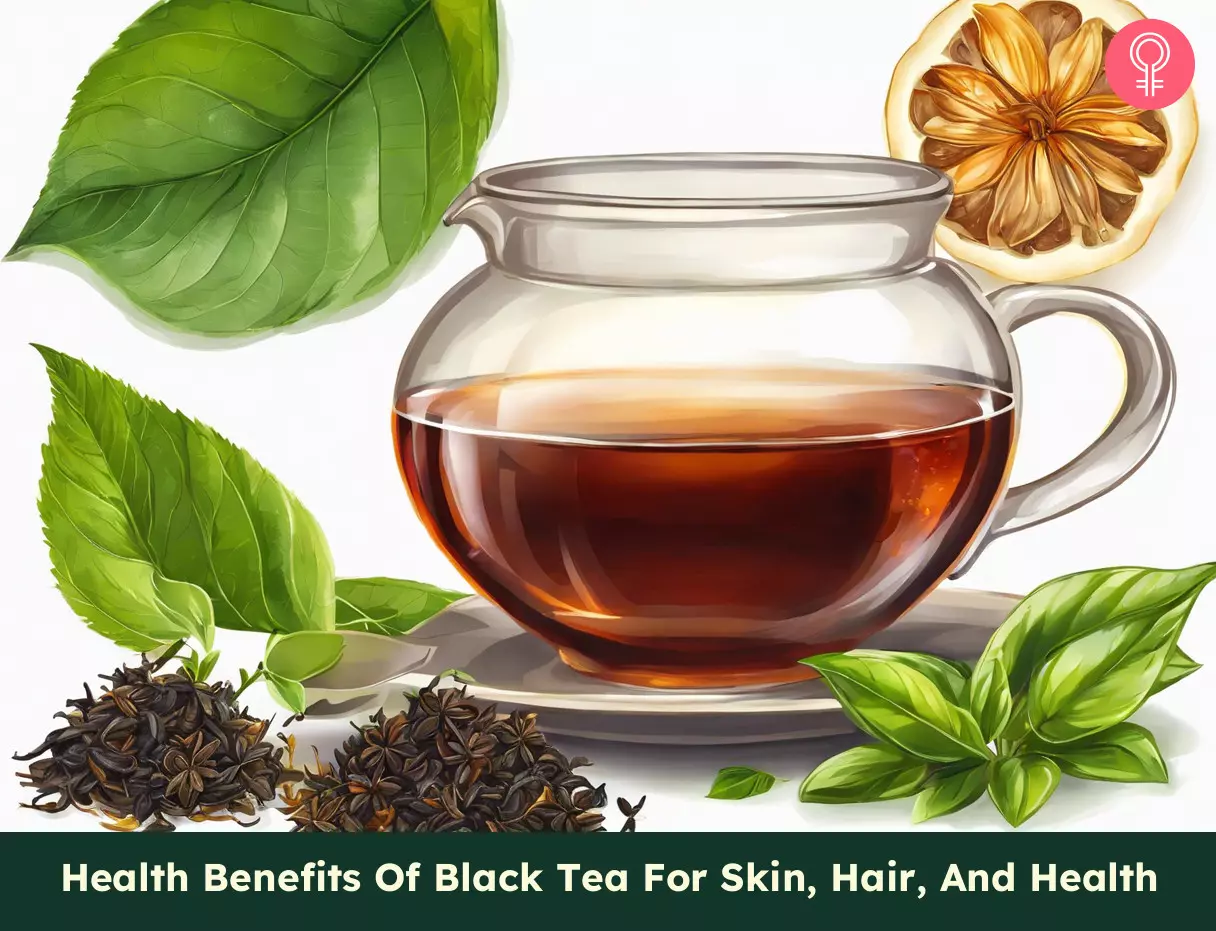
Image: Stable Diffusion/StyleCraze Design Team
Personal Experience: Source
StyleCraze's articles are interwoven with authentic personal narratives that provide depth and resonance to our content. Below are the sources of the personal accounts referenced in this article.
i. I Quit Coffee for 30 Days and Drank Black Tea Instead;https://medium.com/age-of-awareness/i-quit-coffee-for-30-days-and-drank-black-tea-instead-11cb21f3dbb8
References
Articles on StyleCraze are backed by verified information from peer-reviewed and academic research papers, reputed organizations, research institutions, and medical associations to ensure accuracy and relevance. Read our editorial policy to learn more.
- Łuczaj, W., and E. Skrzydlewska. “Antioxidative properties of black tea.” Preventive medicine 40.6 (2005): 910-918.
https://pubmed.ncbi.nlm.nih.gov/15850895/ - Bunker, Mary Louise, and Margaret McWilliams. “Caffeine content of common beverages.” Journal of the American Dietetic Association 74.1 (1979): 28-32.
https://pubmed.ncbi.nlm.nih.gov/762339/ - Gardner, E. J., C. H. S. Ruxton, and A. R. Leeds. “Black tea–helpful or harmful? A review of the evidence.” European journal of clinical nutrition 61.1 (2007): 3-18.
https://pubmed.ncbi.nlm.nih.gov/16855537/ - Deka, Apranta, and Joseph A. Vita. “Tea and cardiovascular disease.” Pharmacological research 64.2 (2011): 136-145.
https://www.ncbi.nlm.nih.gov/pmc/articles/PMC3123419/ - Gao, Ying, et al. “Inhibitory effects of the four main theaflavin derivatives found in black tea on ovarian cancer cells.” Anticancer research 36.2 (2016): 643-651.
https://pubmed.ncbi.nlm.nih.gov/26851019/ - Baker, J. A., et al. “Consumption of black tea or coffee and risk of ovarian cancer.” International Journal of Gynecologic Cancer 17.1 (2007).
https://pubmed.ncbi.nlm.nih.gov/17291231/ - Odegaard, Andrew O., et al. “Coffee, tea, and incident type 2 diabetes: the Singapore Chinese Health Study.” The American journal of clinical nutrition 88.4 (2008): 979-985.
https://www.ncbi.nlm.nih.gov/pmc/articles/PMC2737528/ - Pandey, Kanti Bhooshan, and Syed Ibrahim Rizvi. “Plant polyphenols as dietary antioxidants in human health and disease.” Oxidative medicine and cellular longevity 2 (2009).
https://www.ncbi.nlm.nih.gov/pmc/articles/PMC2835915/ - Hendricks, Rahzia, and Edmund John Pool. “The in vitro effects of rooibos and black tea on immune pathways.” Journal of Immunoassay and Immunochemistry 31.2 (2010): 169-180.
https://pubmed.ncbi.nlm.nih.gov/20391028/ - Greyling, Arno, et al. “The effect of black tea on blood pressure: a systematic review with meta-analysis of randomized controlled trials.” PLoS One 9.7 (2014): e103247.
https://www.ncbi.nlm.nih.gov/pmc/articles/PMC4117505/ - De Bruin, E. A., et al. “Black tea improves attention and self-reported alertness.” Appetite 56.2 (2011): 235-240.
https://pubmed.ncbi.nlm.nih.gov/21172396/ - Nobre, Anna C., Anling Rao, and Gail N. Owen. “L-theanine, a natural constituent in tea, and its effect on mental state.” Asia Pacific journal of clinical nutrition 17 (2008).
https://pubmed.ncbi.nlm.nih.gov/18296328/ - Das, Asankur Sekhar, Maitrayee Mukherjee, and Chandan Mitra. “Evidence for a prospective anti-osteoporosis effect of black tea (Camellia Sinensis) extract in a bilaterally ovariectomized rat model.” Asia Pacific Journal of Clinical Nutrition 13.2 (2004): 210-216.
https://pubmed.ncbi.nlm.nih.gov/15228990/ - Huang, Chenshu, and Rongrui Tang. “Tea drinking habits and osteoporotic hip/femur fractures: a case-control study.” Pakistan journal of medical sciences 32.2 (2016): 408.
https://www.ncbi.nlm.nih.gov/pmc/articles/PMC4859033/ - Caruana, Mario, and Neville Vassallo. “Tea polyphenols in Parkinson’s disease.” Natural Compounds as Therapeutic Agents for Amyloidogenic Diseases. Springer, Cham, 2015. 117-137.
https://pubmed.ncbi.nlm.nih.gov/26092629/ - Tan, Louis C., et al. “Differential effects of black versus green tea on risk of Parkinson’s disease in the Singapore Chinese Health Study.” American journal of epidemiology 167.5 (2008): 553-560.
https://www.ncbi.nlm.nih.gov/pmc/articles/PMC2737529/ - Banerjee, Debashish, et al. “Comparative healing property of kombucha tea and black tea against indomethacin-induced gastric ulceration in mice: possible mechanism of action.” Food & function 1.3 (2010): 284-293.
https://pubmed.ncbi.nlm.nih.gov/21776478/ - Nechuta, Sarah, et al. “Prospective cohort study of tea consumption and risk of digestive system cancers: results from the Shanghai Women’s Health Study.” The American journal of clinical nutrition 96.5 (2012): 1056-1063.
https://www.ncbi.nlm.nih.gov/pmc/articles/PMC3471195/ - Davies, Michael J., et al. “Black tea consumption reduces total and LDL cholesterol in mildly hypercholesterolemic adults.” The Journal of nutrition 133.10 (2003): 3298S-3302S.
https://pubmed.ncbi.nlm.nih.gov/14519829/ - Fujita, Hiroyuki, and Tomohide Yamagami. “Antihypercholesterolemic effect of Chinese black tea extract in human subjects with borderline hypercholesterolemia.” Nutrition research 28.7 (2008): 450-456.
https://pubmed.ncbi.nlm.nih.gov/19083445/ - Heber, David, et al. “Green tea, black tea, and oolong tea polyphenols reduce visceral fat and inflammation in mice fed high-fat, high-sucrose obesogenic diets.” The Journal of nutrition 144.9 (2014): 1385-1393.
https://pubmed.ncbi.nlm.nih.gov/25031332/ - Oi, Yasuyuki, et al. “Antiobesity effects of Chinese black tea (Pu‐erh tea) extract and gallic acid.” Phytotherapy Research 26.4 (2012): 475-481.
https://pubmed.ncbi.nlm.nih.gov/22508359/ - Charrier, Marina JS, Geoffrey P. Savage, and Leo Vanhanen. “Oxalate content and calcium binding capacity of tea and herbal teas.” Asia Pacific Journal of Clinical Nutrition 11.4 (2002): 298-301.
https://pubmed.ncbi.nlm.nih.gov/12495262/ - Rode, Julie, et al. “Daily green tea infusions in hypercalciuric renal stone patients: no evidence for increased stone risk factors or oxalate-dependent stones.” Nutrients 11.2 (2019): 256.
https://www.ncbi.nlm.nih.gov/pmc/articles/PMC6412450/ - Köroğlu, Özge A., et al. “Anti-inflammatory effect of caffeine is associated with improved lung function after lipopolysaccharide-induced amnionitis.” Neonatology 106.3 (2014): 235-240.
https://www.ncbi.nlm.nih.gov/pmc/articles/PMC4123217/ - Tanaka, Toshio, and Ryo Takahashi. “Flavonoids and asthma.” Nutrients 5.6 (2013): 2128-2143.
https://www.ncbi.nlm.nih.gov/pmc/articles/PMC3725497/ - Chan, Eric WC, et al. “Antioxidant and antibacterial properties of green, black, and herbal teas of Camellia sinensis.” Pharmacognosy research 3.4 (2011): 266.
https://www.ncbi.nlm.nih.gov/pmc/articles/PMC3249787/ - Falcinelli, Shane D., et al. “Green tea and epigallocatechin-3-gallate are bactericidal against Bacillus anthracis.” FEMS Microbiology Letters 364.12 (2017).
https://academic.oup.com/femsle/article/364/12/fnx127/3866595 - Steptoe, Andrew, et al. “The effects of tea on psychophysiological stress responsivity and post-stress recovery: a randomised double-blind trial.” Psychopharmacology 190.1 (2007): 81-89.
https://pubmed.ncbi.nlm.nih.gov/17013636/ - Goenka, Puneet, et al. “Camellia sinensis (Tea): Implications and role in preventing dental decay.” Pharmacognosy reviews 7.14 (2013): 152.
https://www.ncbi.nlm.nih.gov/pmc/articles/PMC3841993/ - Naderi, N. Jalayer, et al. “Antibacterial activity of Iranian green and black tea on streptococcus mutans: an in vitro study.” Journal of Dentistry (Tehran, Iran) 8.2 (2011): 55.
https://www.ncbi.nlm.nih.gov/pmc/articles/PMC3184736/ - Sarkar, S., et al. “Effect of black tea on teeth.” Journal of the Indian Society of Pedodontics and Preventive Dentistry 18.4 (2000): 139-140.
https://pubmed.ncbi.nlm.nih.gov/11601182/ - Halder, Ajanta, et al. “Black tea (Camellia sinensis) as a chemopreventive agent in oral precancerous lesions.” Journal of Environmental Pathology, Toxicology and Oncology 24.2 (2005).
https://pubmed.ncbi.nlm.nih.gov/15831086/ - Dubreuil, J. Daniel. “Antibacterial and antidiarrheal activities of plant products against enterotoxinogenic Escherichia coli.” Toxins 5.11 (2013): 2009-2041.
https://www.ncbi.nlm.nih.gov/pmc/articles/PMC3847712/ - Friedman, Mendel, et al. “Antimicrobial activities of tea catechins and theaflavins and tea extracts against Bacillus cereus.” Journal of food protection 69.2 (2006): 354-361.
https://pubmed.ncbi.nlm.nih.gov/16496576/ - Chatterjee, Priyanka, et al. “Evaluation of anti-inflammatory effects of green tea and black tea: A comparative in vitro study.” Journal of advanced pharmaceutical technology & research 3.2 (2012): 136.
https://www.ncbi.nlm.nih.gov/pmc/articles/PMC3401676/ - Lee, Kyung Ok, Sang Nam Kim, and Young Chul Kim. “Anti-wrinkle effects of water extracts of teas in hairless mouse.” Toxicological research 30.4 (2014): 283-289.
https://www.ncbi.nlm.nih.gov/pmc/articles/PMC4289929/ - Rees, Judy R et al. “Tea consumption and basal cell and squamous cell skin cancer: results of a case-control study.” Journal of the American Academy of Dermatology vol. 56,5 (2007): 781-5.
https://www.ncbi.nlm.nih.gov/pmc/articles/PMC1955322/ - Korać, Radava R, and Kapil M Khambholja. “Potential of herbs in skin protection from ultraviolet radiation.” Pharmacognosy reviews vol. 5,10 (2011): 164-73.
https://www.ncbi.nlm.nih.gov/pmc/articles/PMC3263051/ - Zhao, J et al. “Photoprotective effect of black tea extracts against UVB-induced phototoxicity in skin.” Photochemistry and photobiology vol. 70,4 (1999): 637-44.
https://pubmed.ncbi.nlm.nih.gov/10546558/ - Hajiaghaalipour, Fatemeh et al. “The Effect of Camellia sinensis on Wound Healing Potential in an Animal Model.” Evidence-based complementary and alternative medicine : eCAM vol. 2013 (2013): 386734.
https://www.ncbi.nlm.nih.gov/pmc/articles/PMC3705756/ - Choi, So-Young, and Young-Chul Kim. “Whitening effect of black tea water extract on brown Guinea pig skin.” Toxicological research vol. 27,3 (2011): 153-60.
https://www.ncbi.nlm.nih.gov/pmc/articles/PMC3834380/ - Yesudian, Patrick. “Can beverages grow hair on bald heads?.” International journal of trichology vol. 4,1 (2012): 1-2.
https://www.ncbi.nlm.nih.gov/pmc/articles/PMC3358932/ - Hou, I-Ching et al. “A hair growth-promoting effect of Chinese black tea extract in mice.” Bioscience, biotechnology, and biochemistry vol. 77,7 (2013): 1606-7.
https://pubmed.ncbi.nlm.nih.gov/23832356/ - New Perspectives on Sleep Regulation by Tea: Harmonizing Pathological Sleep and Energy Balance under Stress
https://www.ncbi.nlm.nih.gov/pmc/articles/PMC9738644/# - Flavonoid composition of tea: Comparison of black and green teas, USDA.
https://citeseerx.ist.psu.edu/viewdoc/download?doi=10.1.1.195.6410&rep=rep1&type=pdf - Tea, brewed, prepared with tap water [black tea] Nutrition Facts & Calories.
https://fdc.nal.usda.gov/fdc-app.html#/food-details/173227/nutrients - Willson, Cyril. “The clinical toxicology of caffeine: A review and case study.” Toxicology reports vol. 5 1140-1152. 3 Nov. 2018.
https://www.ncbi.nlm.nih.gov/pmc/articles/PMC6247400/ - Müller-Lissner, Stefan A et al. “The perceived effect of various foods and beverages on stool consistency.” European journal of gastroenterology & hepatology vol. 17,1 (2005): 109-12.
https://pubmed.ncbi.nlm.nih.gov/15647650/ - Lara, Diogo R. “Caffeine, mental health, and psychiatric disorders.” Journal of Alzheimer’s disease : JAD vol. 20 Suppl 1 (2010): S239-48.
https://pubmed.ncbi.nlm.nih.gov/20164571/ - Sun, Shenyou et al. “Coffee and caffeine intake and risk of urinary incontinence: a meta-analysis of observational studies.” BMC urology vol. 16,1 61. 6 Oct. 2016.
https://www.ncbi.nlm.nih.gov/pmc/articles/PMC5052721/ - van Koert, Rick R et al. “Caffeine and seizures: A systematic review and quantitative analysis.” Epilepsy & behavior : E&B vol. 80 (2018): 37-47.
https://pubmed.ncbi.nlm.nih.gov/29414557/ - Huber-van der Velden, K K. “Einfluss von Genussmitteln auf das Glaukom” [Influence of Luxury Foodstuffs on Glaucoma]. Klinische Monatsblatter fur Augenheilkunde vol. 234,2 (2017): 185-190.
https://pubmed.ncbi.nlm.nih.gov/28142165/
Read full bio of Monica Auslander Moreno
- Bill Bradlet, RD, is a registered dietitian who has led over 1600 workshops and authored two books. He has over half a decade of experience and specializes in the Mediterranean diet and lifestyle. He is an alumnus of the University of Massachusetts Amherst.
 Bill Bradlet, RD, is a registered dietitian who has led over 1600 workshops and authored two books. He has over half a decade of experience and specializes in the Mediterranean diet and lifestyle. He is an alumnus of the University of Massachusetts Amherst.
Bill Bradlet, RD, is a registered dietitian who has led over 1600 workshops and authored two books. He has over half a decade of experience and specializes in the Mediterranean diet and lifestyle. He is an alumnus of the University of Massachusetts Amherst.
Read full bio of Ravi Teja Tadimalla
Read full bio of Payal Karnik







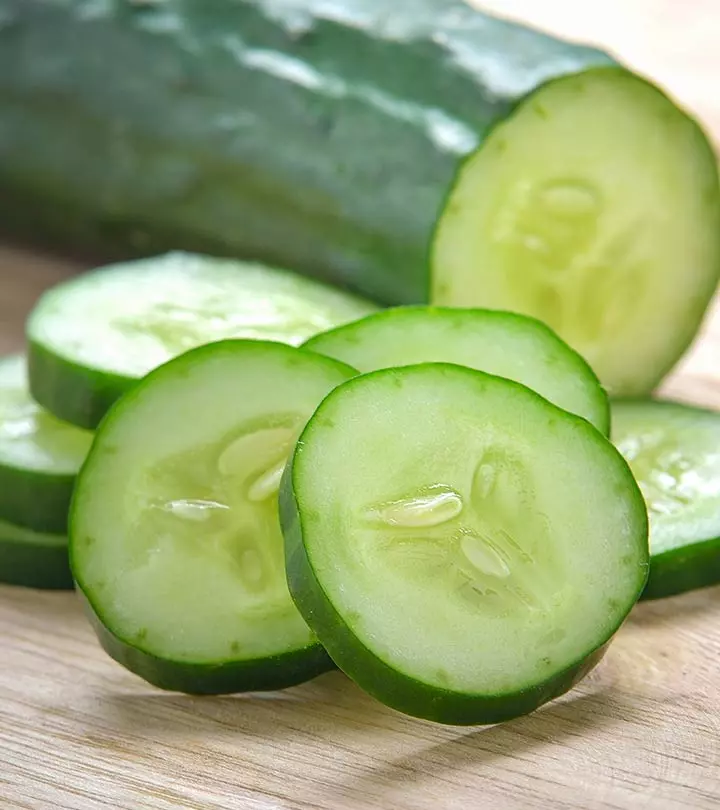
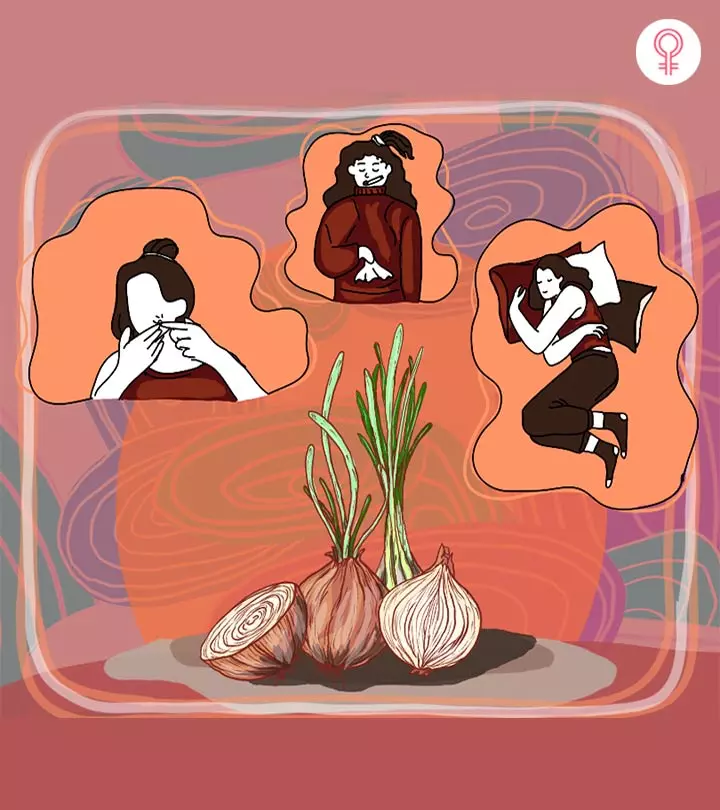
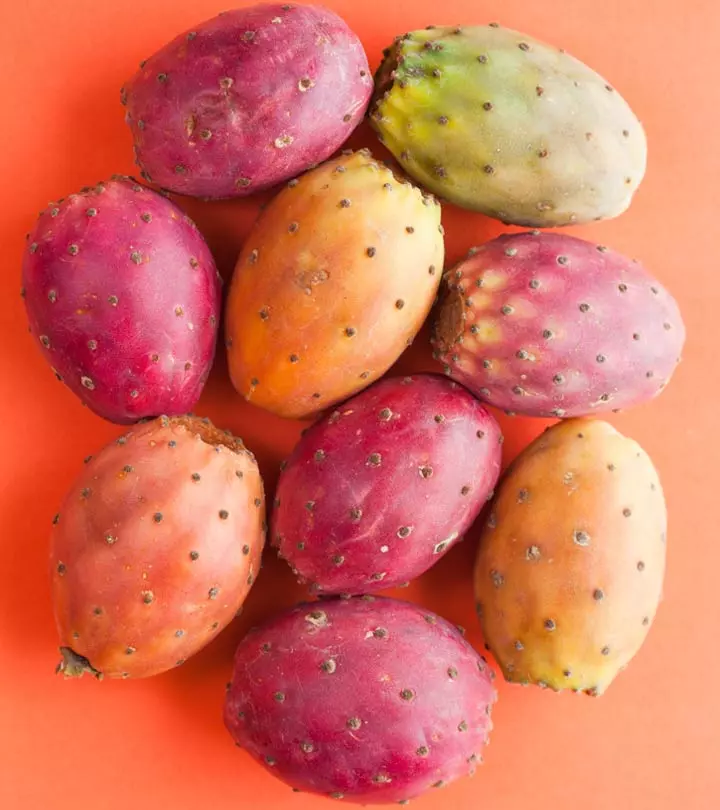
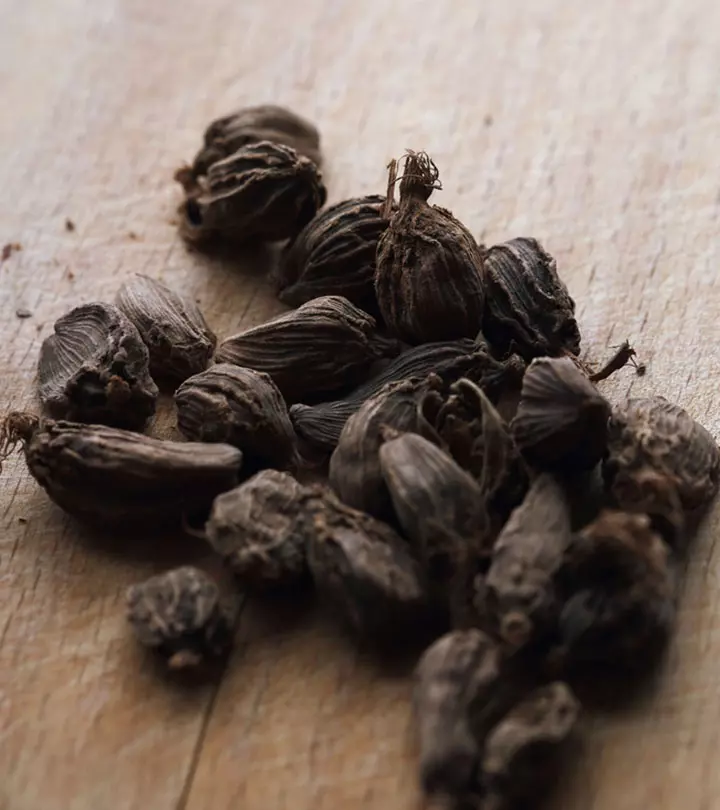
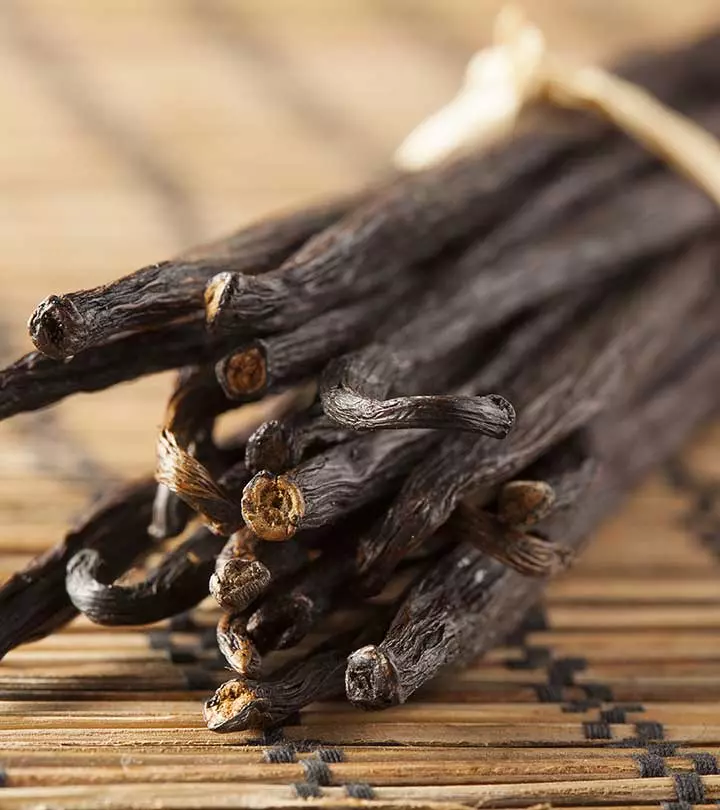
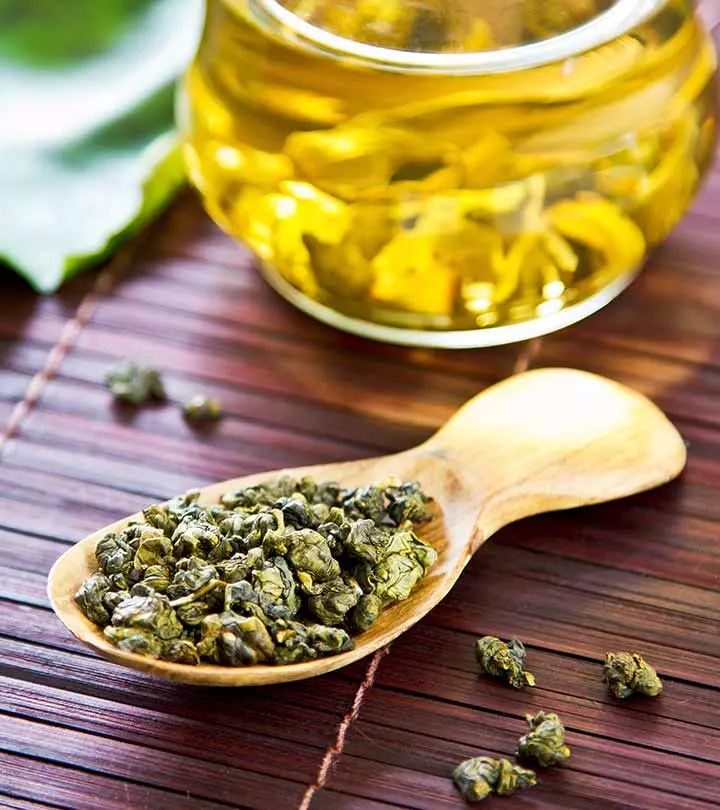
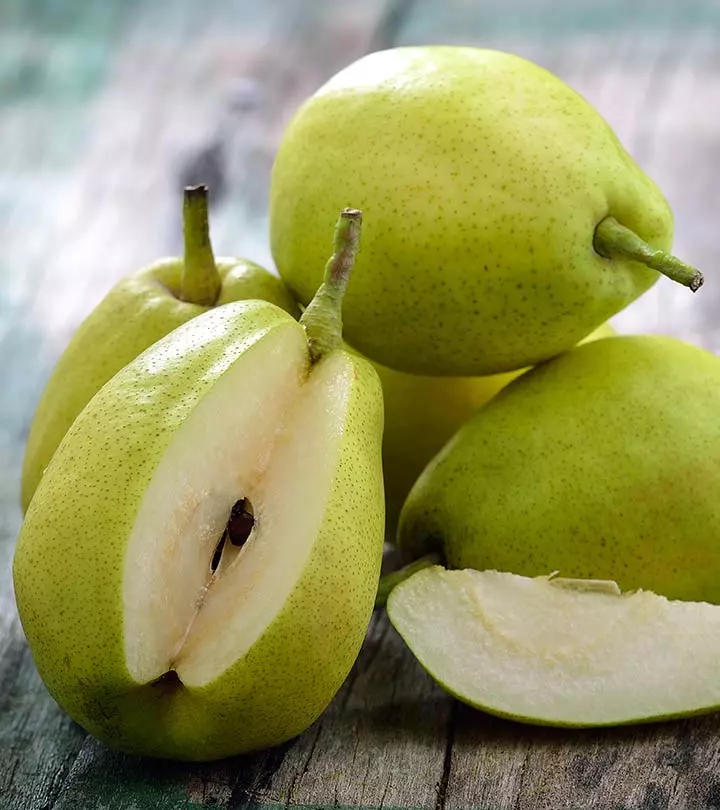
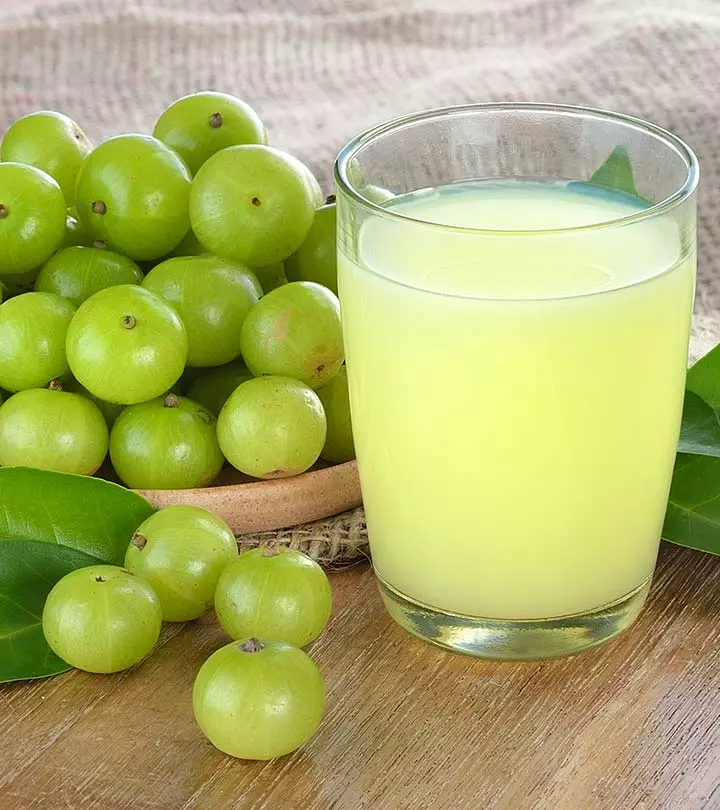
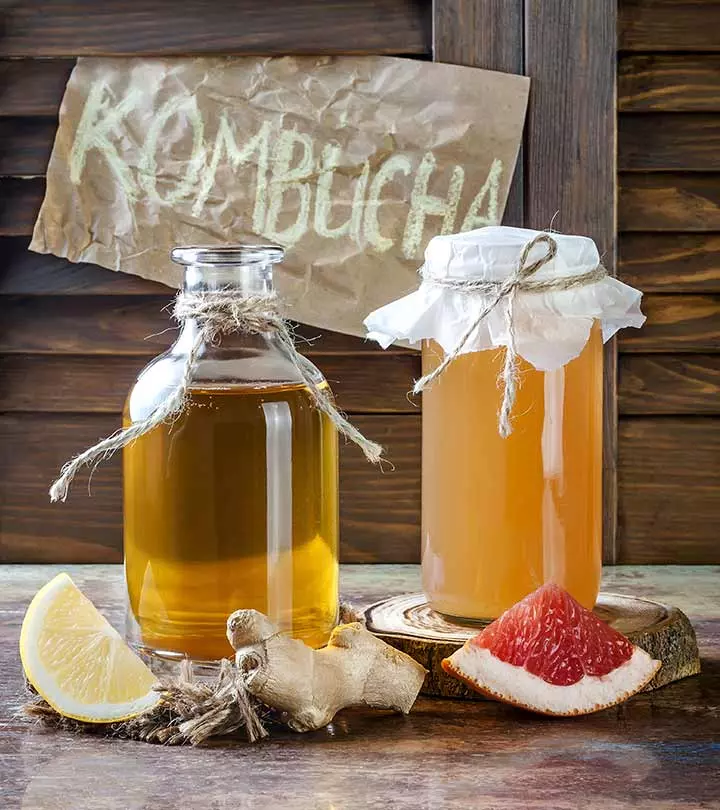
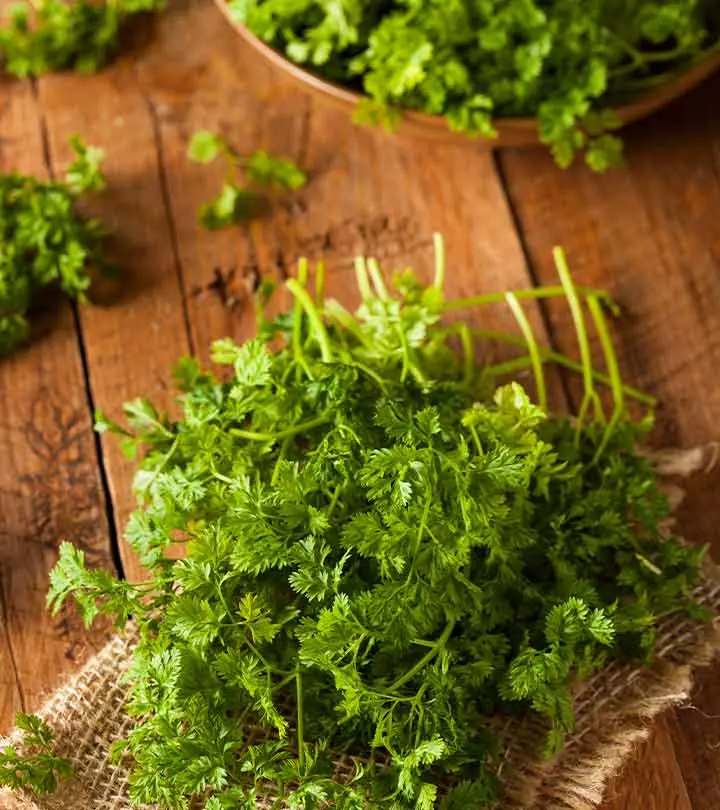
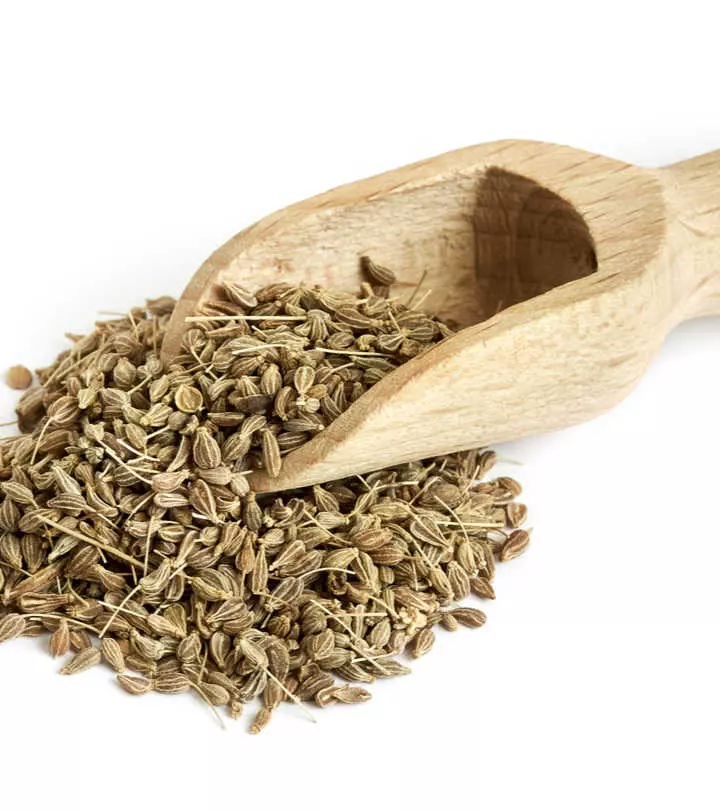
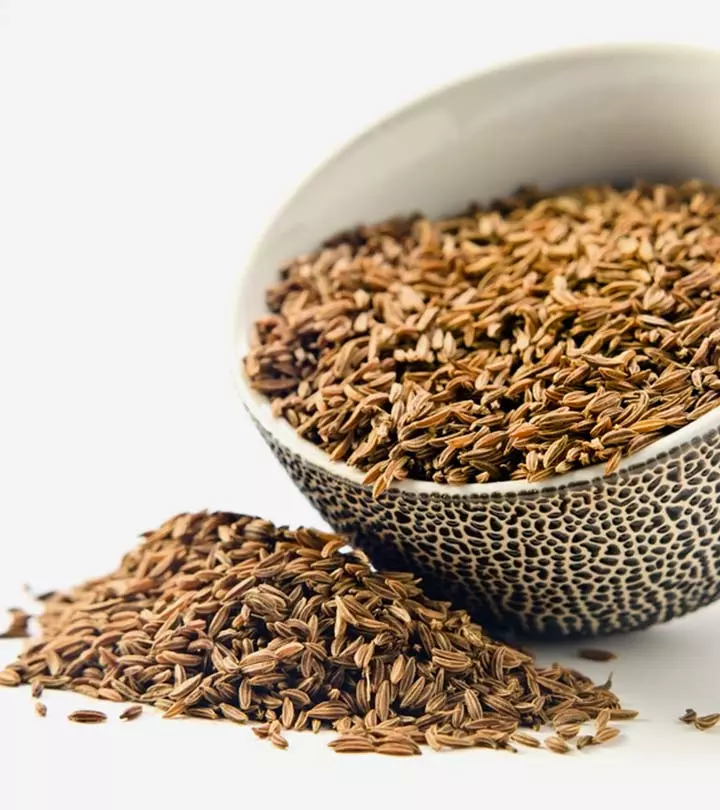
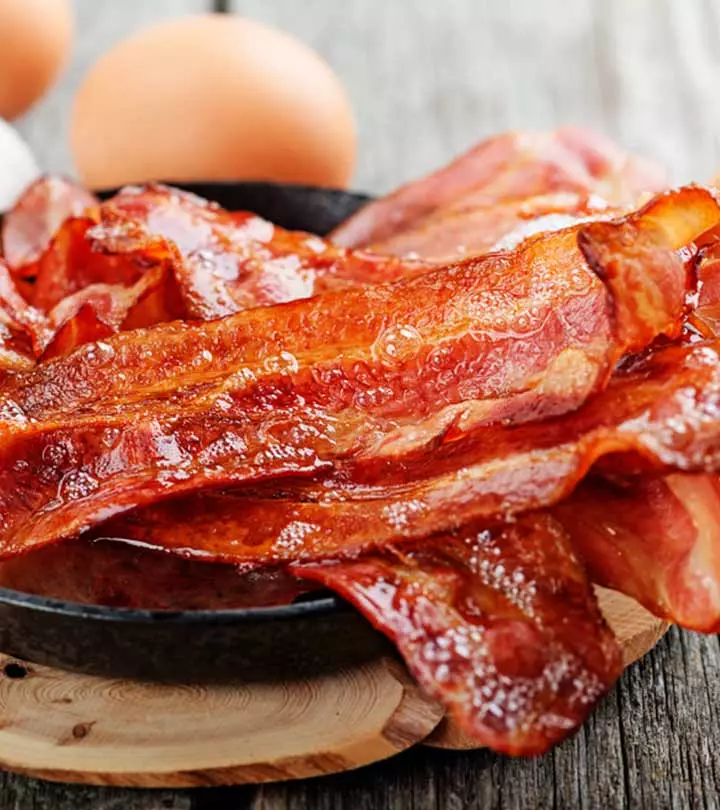
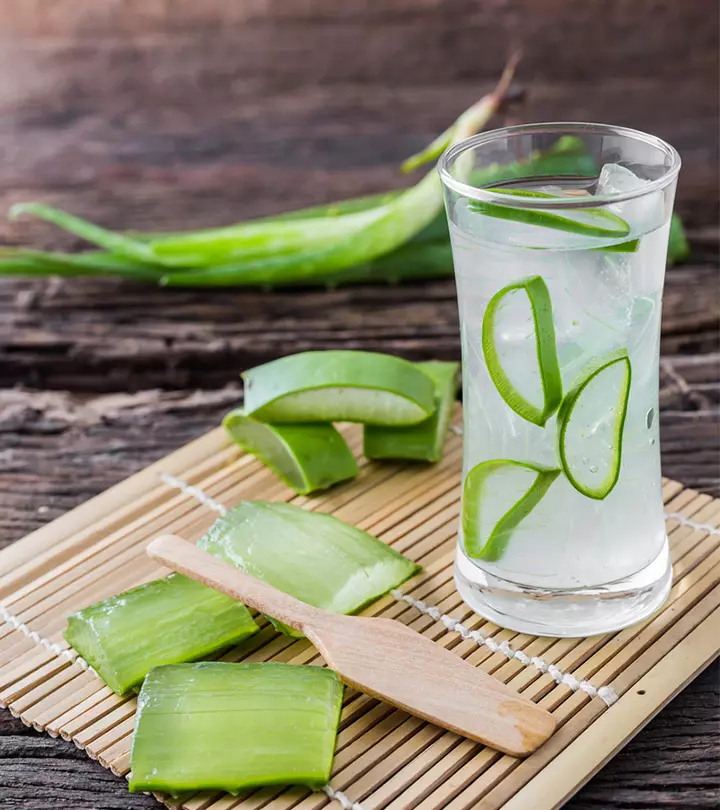

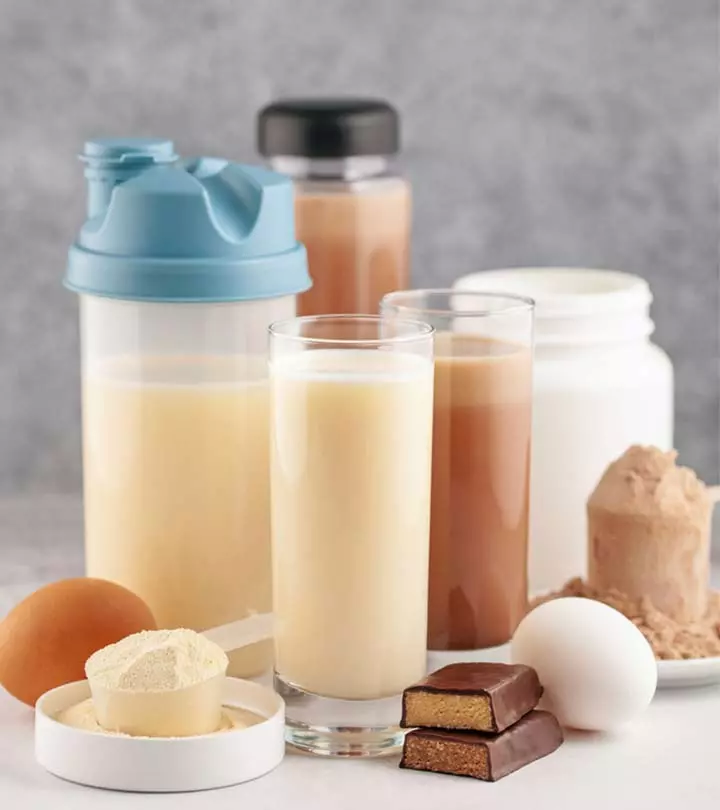

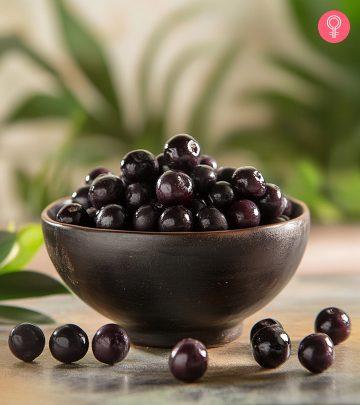
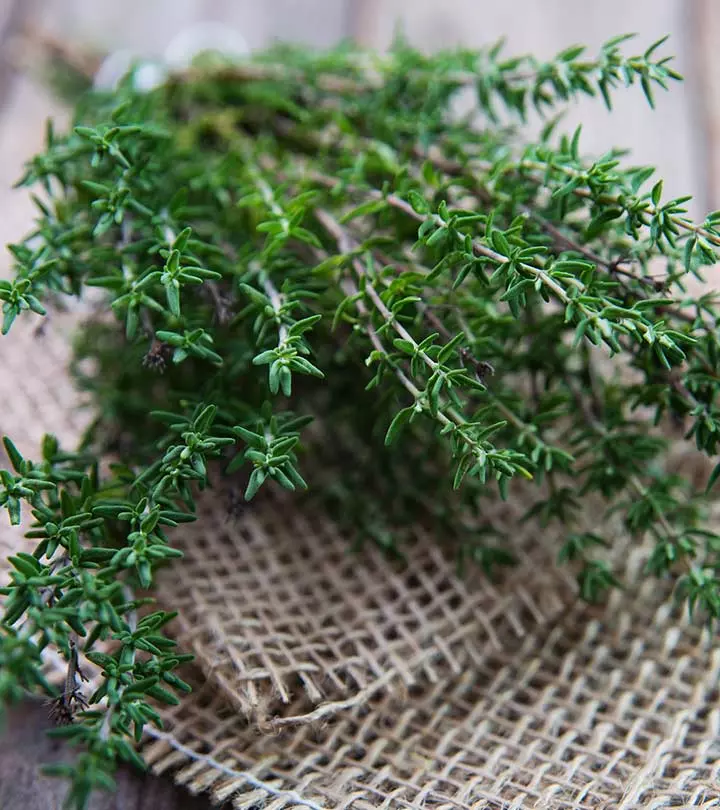

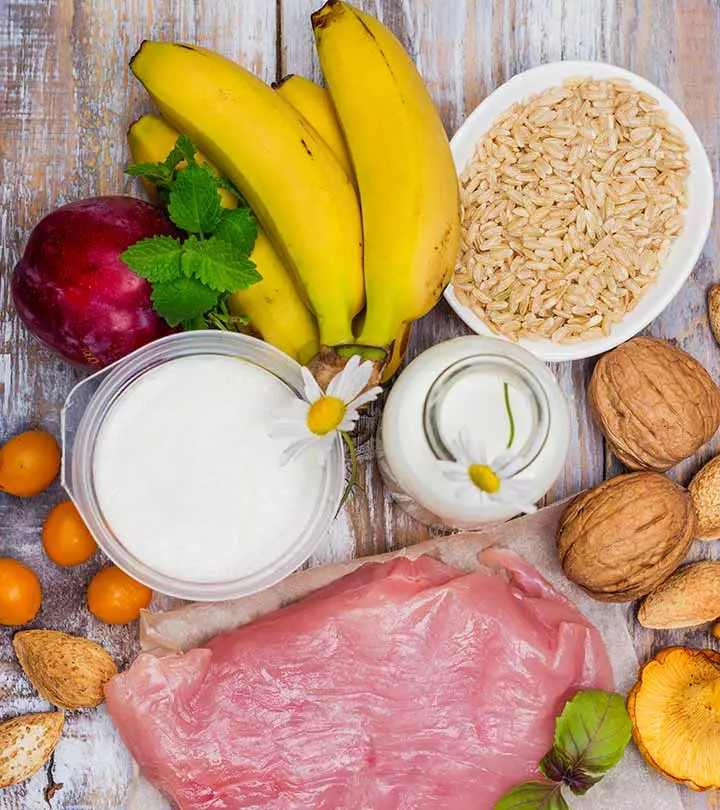
Community Experiences
Join the conversation and become a part of our empowering community! Share your stories, experiences, and insights to connect with other beauty, lifestyle, and health enthusiasts.